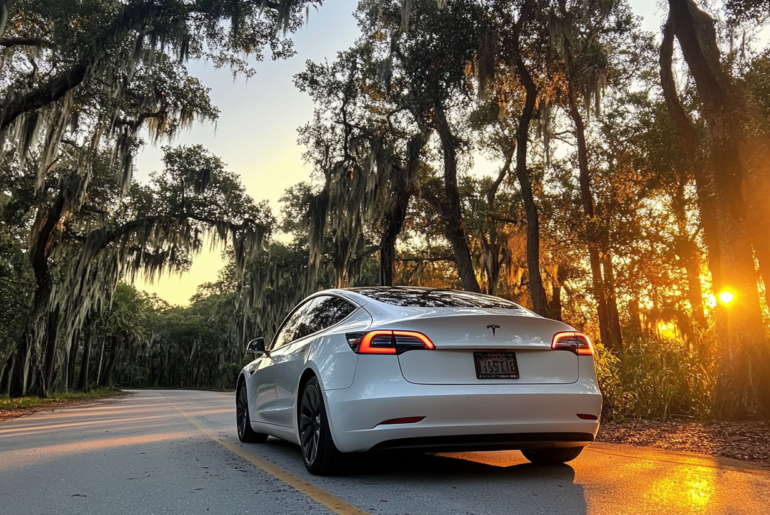This article may contain references to products or services from one or more of our advertisers or partners. We may receive compensation when you click on links to those products or services. Nonetheless, our opinions are our own.
The information presented in this article is accurate to the best of our knowledge at the time of publication. However, information is subject to change, and no guarantees are made about the continued accuracy or completeness of this content after its publication date.
Understanding the Safety Concerns Surrounding Tesla’s Autopilot Features
As with any emerging technology, the features of Tesla’s Autopilot have ignited a range of concerns among the public. Many individuals express safety-related worries, particularly given the complexities of real-world driving. Here are a few common apprehensions:
- Reliability of Technology: You might wonder how well the Autopilot system can react in unpredictable situations. While it’s designed to assist, instances of failure raise eyebrows.
- Driver Monitoring: There’s debate about how effectively the system ensures drivers remain attentive. You may feel uneasy knowing that momentary distractions could have serious consequences.
- Accident Reports: High-profile incidents involving Autopilot have heightened fears. You might find yourself questioning whether you’re safe behind the wheel of a vehicle that’s only partially automated.
A recent survey revealed a striking sentiment among Americans regarding autonomous driving features:
| Concern | Percentage of Respondents |
|---|---|
| Unsure about Safety | 72% |
| Comfort with Level of Automation | 25% |
| Trust in Technology | 18% |
These figures clearly illustrate that many consumers express caution about the safety implications of relying on technology that isn’t infallible. Understanding these concerns is essential to navigating the evolving landscape of autonomous vehicles and ensuring that any progress prioritizes human safety.
Exploring Public Perception of Autonomous Vehicles
Autonomous vehicles (AVs) have sparked a blend of interest and apprehension among consumers. While innovations from companies like Tesla promise to revolutionize transportation, many Americans remain skeptical about embracing this new frontier. This unease stems from several key factors:
- Safety Concerns: Many worry that self-driving technology could malfunction, potentially leading to accidents.
- Job Displacement: The prospect of large-scale automation raises fears about job losses in driving-related professions.
- Ethical Dilemmas: When a vehicle must make snap decisions in unavoidable accident scenarios, moral questions arise, adding complexity to the debate.
To illustrate how deeply these perceptions run, a recent survey showcased varying levels of acceptance across age groups:
| Age Group | Comfort Level with AVs (%) |
|---|---|
| 18–24 | 55 |
| 25–34 | 47 |
| 35–44 | 34 |
| 45–54 | 29 |
| 55+ | 22 |
It’s essential to consider these viewpoints as we evaluate the future of transportation technology. Whether a tech enthusiast or a cautious observer, understanding public sentiment helps inform your decisions as AVs become more common on our roads.
The Financial Implications of Investing in Tesla Technology
When considering an investment in Tesla, it’s important to weigh both the potential benefits and the risks. Tesla is more than just a car manufacturer; it’s a tech innovator in electric vehicles and renewable energy. Here are several factors to consider:
- Market Volatility: Tesla’s stock is known for dramatic swings that can impact your investment portfolio.
- Investment Horizon: A long-term perspective may be necessary. While short-term gains are possible, much of Tesla’s potential lies in the future of renewable energy.
- Competitive Landscape: As more companies enter the electric vehicle market, evaluating how Tesla’s position compares and whether it can maintain its lead is essential.
| Aspect | Tesla Investment | Traditional Investment |
|---|---|---|
| Growth Potential | High | Moderate |
| Volatility | High | Low |
| Market Sentiment | Strong | Stable |
Aligning your investment strategy with your financial goals, risk tolerance, and market outlook can help determine whether Tesla fits your portfolio.
If you’re hesitant about Tesla’s suite of technologies, you’re not alone. Many consumers are exploring alternatives that offer similar benefits without the same concerns. Whether you’re considering electric vehicles, solar energy, or battery storage systems, the market offers many viable options:
- Electric Vehicles: Brands like Ford and Chevrolet are developing electric models with impressive range and features.
- Solar Panel Systems: Companies like LG and SunPower offer efficient solar solutions that can help reduce your energy bills and environmental impact.
- Battery Storage Solutions: Services such as Enphase and Generac provide reliable home batteries that store energy during the day for nighttime use.
Here’s a breakdown of costs and potential savings:
| Option | Average Cost | Potential Savings |
|---|---|---|
| Electric Vehicles | $35,000–$60,000 | Up to $7,500 federal tax credit |
| Solar Panels | $10,000–$30,000 | Up to 26% federal tax credit |
| Battery System | $7,000–$15,000 | Reduced power bills based on usage |
Weighing your options and understanding the financial implications can empower you to make informed decisions that align with your values and goals.
Empowering Yourself with Knowledge on EV Technology and Safety
Staying informed about electric vehicle (EV) technology is crucial, especially when considering the safety implications of features like Autopilot and Full Self-Driving. Although these innovations promise convenience and efficiency, hesitancy is understandable. Here’s how educating yourself can make a difference:
- Understanding EV Fundamentals: To reduce uncertainty, learn how EVs operate, including charging mechanics and battery life cycles.
- Knowing the Risks: Be aware of the limitations and risks associated with autonomous features to make safer choices.
- Reviewing Expert Insights: Analyze studies and expert reviews on the safety and performance of EV technologies.
- Reading Community Feedback: Explore forums and firsthand accounts from current EV owners to gauge reliability and safety.
Your comfort with adopting new technology depends on informed confidence. Evaluate data critically, ask questions, and seek advice when needed. This knowledge will help you confidently navigate Tesla’s offerings and the broader EV market.
| Feature | Pros | Cons |
|---|---|---|
| Autopilot | Convenient, reduces driver fatigue | Mixed safety records require oversight |
| Full Self-Driving | Potential for autonomous travel | Still in beta, reliability concerns |
Conclusion
As Tesla continues to shape the future of transportation, it faces both enthusiastic support and measured skepticism. For first-time users navigating the intersection of innovation and personal finance, the promise of autonomous vehicles and clean energy solutions must be balanced against real concerns, ranging from safety and ethical implications to investment risk and regulatory oversight. By understanding public sentiment, evaluating alternative technologies, and staying informed about EV safety and functionality developments, you can make empowered decisions that align with your financial goals and comfort level. Whether you embrace Tesla’s vision or explore other paths, the key lies in knowledge, caution, and confidence in your choices.
Frequently Asked Questions
What Tesla technology are Americans feeling uneasy about?
Many Americans are concerned about Tesla’s Full Self-Driving (FSD) capability. Despite its advanced features, there are widespread apprehensions regarding safety, reliability, and the system’s ability to handle complex driving scenarios.
Why do people feel this way about Full Self-Driving?
Unease stems from high-profile accidents involving Tesla vehicles using FSD. Many feel the technology is not yet ready for widespread use and worry that over-reliance on automation could create hazardous situations.
Is the concern widespread among different demographics?
Concerns about Tesla’s self-driving features span various age groups and demographics. While younger individuals may be more open to the technology, older generations and those with limited tech exposure tend to be more skeptical.
What specific issues are Americans worried about?
Concerns include potential system failures, a lack of human intervention during emergencies, and ethical challenges in autonomous system decision-making. There’s also worry that regulatory oversight hasn’t caught up with technological advancements.
How does public perception impact Tesla’s future?
Public perception is critical to Tesla’s success. Consumer confidence influences sales and adoption rates. Addressing safety concerns and improving transparency will be essential for Tesla’s continued growth.

Reviewed and edited by Albert Fang.
See a typo or want to suggest an edit/revision to the content? Use the contact us form to provide feedback.
At FangWallet, we value editorial integrity and open collaboration in curating quality content for readers to enjoy. Much appreciated for the assist.
Did you like our article and find it insightful? We encourage sharing the article link with family and friends to benefit as well - better yet, sharing on social media. Thank you for the support! 🍉
Article Title: 4 Key Safety Concerns About Tesla’s Autopilot You Should Know in 2025
https://fangwallet.com/2025/04/04/safety-concerns-about-teslas-autopilot/The FangWallet Promise
FangWallet is an editorially independent resource - founded on breaking down challenging financial concepts for anyone to understand since 2014. While we adhere to editorial integrity, note that this post may contain references to products from our partners.
The FangWallet promise is always to have your best interest in mind and be transparent and honest about the financial picture.
Become an Insider

Subscribe to get a free daily budget planner printable to help get your money on track!
Make passive money the right way. No spam.
Editorial Disclaimer: The editorial content on this page is not provided by any of the companies mentioned. The opinions expressed here are the author's alone.
The content of this website is for informational purposes only and does not represent investment advice, or an offer or solicitation to buy or sell any security, investment, or product. Investors are encouraged to do their own due diligence, and, if necessary, consult professional advising before making any investment decisions. Investing involves a high degree of risk, and financial losses may occur including the potential loss of principal.
Source Citation References:
+ Inspo
There are no additional citations or references to note for this article at this time.












































